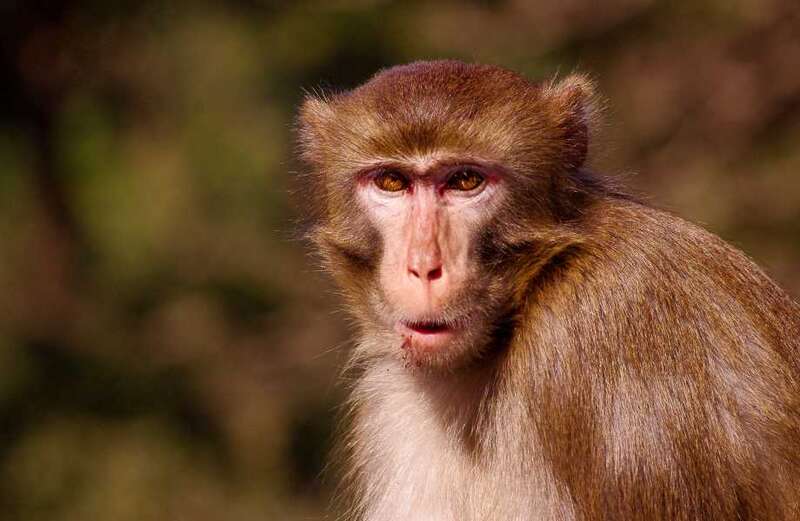A MAN is fighting for his life in hospital after he caught a rare and deadly virus from a monkey bite.
The 37-year-old reportedly contracted the brain swelling bug after being attacked during a trip to Hong Kong's Kam Shan Country Park, also known as Monkey Hill, in late February.

He was rushed to the hospital on March 21 with a fever and "decreased conscious level," according to a statement from the Centre for Health Protection (CHP), an arm of the Department of Health in Hong Kong.
The man has since been moved to the intensive care unit and is in a "critical" condition.
Tests revealed he had picked up monkey virus B, also known as herpes B virus or herpes simian virus, commonly found in the saliva, urine, and faeces of macaques.
 Andrew Tate 'tried to lure ex-Playboy model to Romanian lair' before his arrest
Andrew Tate 'tried to lure ex-Playboy model to Romanian lair' before his arrest
Macaque monkeys are commonly infected by the virus but do not show symptoms.
According to his family, the man had "contact" and was "wounded" by monkeys in the park.
The virus is extremely rare in humans but can lead to severe neurological issues, including encephalitis and brain damage, according to the US Centre for Disease Control and Prevention (CDCP).
It’s harmless to primates but kills between 70 and 80 per cent of humans infected.
People can get infected if they are bitten or scratched by an infected macaque monkey or have contact with the monkey’s eyes, nose, or mouth.
Symptoms appear flu-like and can take up to one month to emerge. They include fever, chills, muscle aches, fatigue and a headache.
People sometimes develop small blisters in the wound or area on their body that had contact with the monkey.


There is currently no jab for herpes B.
Treatment usually involves care to manage symptoms and antiviral medications.
The virus belongs to the herpes family, of which there are over 100. Only eight routinely infect humans, which includes HSV-1, which causes cold sores.
 Inside US's most remote town 2.4 miles from Russia where only 77 people live
Inside US's most remote town 2.4 miles from Russia where only 77 people live
This is the first time the bug has been recorded in Hong Kong, but the disease has been previously seen in the US, Canada, and China.
Since the virus was first discovered in 1932, there have been 50 documented cases in humans.
The CHP has warned the general public to avoid touching or feeding wild monkeys to lower the risk of catching the virus.



































